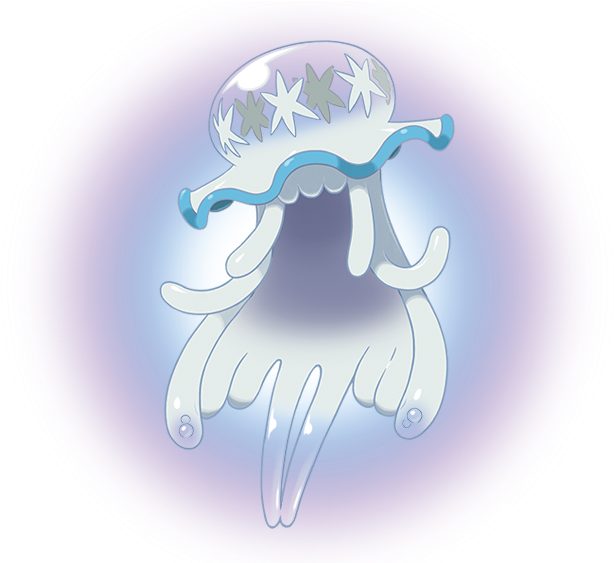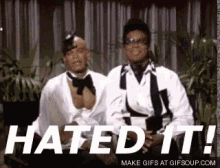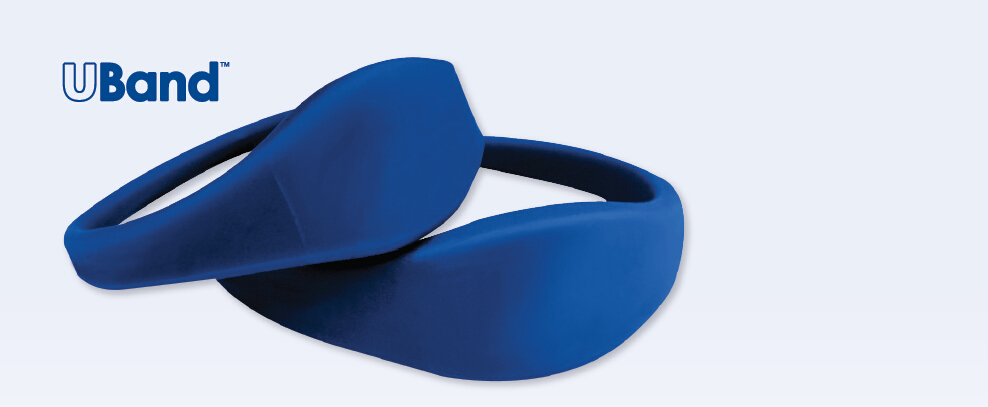-
Is Philosophy Sexist?It's an interesting idea in pondering what you are saying because it kind of sounds like guys are getting all the pressure to not lose to a woman AND not lose to another guy? — ArguingWAristotleTiff
Maybe it would help if I just try to describe my experience. Surfing in Southern California is highly competitive because of the scarcity of good waves. The only informal rule or etiquette in the water is that when catching waves the person closest to the breaking part of the wave gets priority. It's very bad form to 'drop-in' on someone because you'll be in their way and it's hazardous. When it's not too crowded or the waves aren't that great people are usually pretty polite and kind of take turns. In the best spots and when the waves are good it's always crowded and folks get really aggressive. In situations like this positioning in the lineup is key. As I mentioned, whoever is closest to the breaking part of the wave gets priority. I should mention that there are very few women who surf these conditions. Btw, I just asked Google and she said that the ratio of men to women in surfing, in general, is 8/2. That sounds about right.
Anyway, back to the lineup in primo waves. When I'm in the lineup and someone paddles by and positions themself just ahead of me, that is, closer to the breaking part of the wave so they get priority, it feels rather rude if they're too close. A while ago a woman did this and I noticed that it bothered me to an unusual degree. I thought that was odd and that it indicated an implicit bias, in that particular arena anyway.
Sometimes it isn't always clear who should get priority, like if it's a peak wave, or the person on the inside is too deep and may not make it past the break of the wave. I remember a situation like this about two years ago where a woman with a longboard dropped-in on me. In fact, I think it was the only time a woman ever dropped in on me, and I really felt burned. It didn't feel right to feel that burned just because it was a woman. That is fucked-up, as you say, but I'm glad that I'm aware of this bias. -
Is Philosophy Sexist?I am curious as to what sport you regularly engage in... — ArguingWAristotleTiff
That's beside the point. The point is that in any aggressively competitive game predominated by men, losing to a woman may have an extra bite to it, and if that's the case, an implicit bias could exist against women in these games. To be clear, I don't support such a bias, I'm just pointing out its existence.
This forum takes on a kind of gladiatorial arena atmosphere from time to time, you must admit. -
Is Philosophy Sexist?
I work in a creative field and because of the nature of that field machoism or whatever is even less of an issue, I imagine.
There are various spheres of social life and some of them are less structured than others. Some of them are also more physical and dominated by men. The sport that I regularly engage is very physical, entirely unregulated, and dominated by men. To get out positioned by a woman in this activity has an extra sting to it, if I may speak frankly. That’s just what I’ve personally experienced, and it’s because of my social conditioning. I know it’s wrong, and I wish it weren’t the case, but there it is.
I imagine the same sort of thing is experienced in other aggressively competitive activities. -
Is Philosophy Sexist?I am not sure you have met the other women of the forum, besides myself. But I think it fair to say that there are other "strong women" in addition to TimeLine that absolutely feel as welcome as any man might. — ArguingWAristotleTiff
Your assumption about who I've met on the forum is curious, but putting that aside, I'm not sure you know what I mean by strong. People can be strong in various ways.
If a man and a woman were in a fight and the woman was kicking ass, well, in this man's world that would just not be okay. Sure we can all cheer to the call for women's empowerment, but when you get your ass handed to you by a woman, that's too much. Equal perhaps, but not more powerful. -
Is Philosophy Sexist?There’s absolutely no doubt that this is a man-centric forum. Women are welcome, of course, but just like in every other patriarchal culture strong women (think TimeLine) are not welcome.
-
Blood and GamesI really think Craig is one of the most enlightened people I've met with his attitudes towards death and dying — Adam Hills
Indeed. :fire:
A quote by Allan Watts comes to mind. Something like “If the universe doesn’t take me seriously then why should I take it seriously.” -
Should Money Be Stripped from the Ideal Evaluation of Arts?Yes, it can be argued that this is the case for close to any aspect - it's just that being materialistic about some does not trigger me as much as being so about arts. — D2OTSSUMMERBUG
Undervaluing art for its own sake is a lamentable symptom of a materialistic and unhealthy culture, in my opinion, so in that way I can appreciate what I think you're saying. -
Should Money Be Stripped from the Ideal Evaluation of Arts?What I am arguing is that when money or market gradually makes up a greater role in considering the worth of art, we seem to accept that how much art is worth lies completely in how much revenue an artist makes, or how willing the public is to consume for the art. — D2OTSSUMMERBUG
I don't see why you would need to argue that. If art is bought and sold in a particular price range then clearly there is an agreement among art buyers and sellers about the art's monetary value.
We all agree that a $100 bill is worth one hundred dollars. The paper and ink itself doesn't contain the value. It's a promise of value or social agreement of value.
Obviously, ignorance can be exploited and people can be fooled into believing that something has greater value than it actually has. This is true in many aspects of culture and not just the art world. Maybe that and problems with financial speculation, or materialistic culture in general, are what you resent? -
Should Money Be Stripped from the Ideal Evaluation of Arts?Art is Art and money is money. I actually don't give a s**t if people straight-up call it "products to profit" and make billions - the problem is that calling these products art is actually corroding aesthetic standards; it reinforces the monetized value as the signifier of the aesthetic value of arts without justifying it. — D2OTSSUMMERBUG
You seem to be suggesting that there are universal or objective aesthetic standards. Is that right? -
Get Creative!It appears to me that the painter has painted himself into the picture.
Hindsight is 20/20, they say, but what is more interesting is that the artist views himself as half the man that Trump is. -
Blood and GamesTertullian, a Christian and therefore an enemy of the games, claimed that those who defended the games and were fans of the games admired the art involved, but considered the artists to be inferior in social status. — Ciceronianus
What about the aristocrats who participated? Did they do so entirely by choice or did it have something to do with status or wealth? -
Donald Trump (All General Trump Conversations Here)I get the feeling you're being sarcastic. — frank
I was shooting for profound. -
Donald Trump (All General Trump Conversations Here)There's a difference between campaigning and blocking someone's path to running for president. It's a pretty big difference. — frank
Trump is an untouchable so any effort to put him down will ultimately be fruitless and only for show. But there are situations in politics where we have to do things simply because it's the right thing to do, even if we know it's only for appearances because to do otherwise is to abandon hope and allow the spirit of democracy in the good hearts of Americans to fall. We cannot let that happen! Appearances matter! -
Donald Trump (All General Trump Conversations Here)I mean you have to be a literal moron to think Jan 6 is the election play. — StreetlightX
Indeed.
So no one would care if there wasn’t an upcoming election? The presidential election is three years from now and Americans have a very short attention span, in case you hadn’t noticed. -
Donald Trump (All General Trump Conversations Here)The law and order president is sued by police officers. Hmm, maybe, just maybe, Trump ain’t as law love’n as advertised? :chin:
https://www.cnn.com/2022/01/04/politics/trump-lawsuits-metro-capitol-police/index.html -
What is it to be Enlightened?Google Translate renders it as 'nothing more than I'. What I meant it to mean is 'nothing more than self'. It's a sarcastic reference to the outlook of liberal indivualism, that the individual ego is the sole arbiter of truth. — Wayfarer
That is not necessarily the case, clearly. What's also clear is that in religion it is exclusively 'nothing more than the tribe of fellow believers'. That is a necessary constraint not shared (in its necessity) by enlightened secular culture. I will also point out that identity of any sort, secular or religious, is based on ego. Is an identity bound to a tribe any better than bound to one's self, or is it worse? Better to transcend all limitations, right? -
What is it to be Enlightened?'nihil ultra ego' — Wayfarer
When I do a search I get this pokeman jellyfish thing and I think to myself “what could Wayfarer be trying to say” :chin:

-
What Are You Watching Right Now?Took a glance at Breitbart, as I occasionally do, and noticed a story about the new West Side Story remake by Spielberg. They all...

They refer to it as Woke Side Story. If casting Latin roles to actual Latin actors (instead of white people with dark makeup) is woke then I guess it's woke. Anyway, I liked it tremendously. -
What is it to be Enlightened?
Conze describes the necessary basic structure of religion, a hierarchy of authority indistinguishable from a hierarchy of truth or reality. Secular culture makes a distinction and is so freed from this terrible chain of being. -
What is it to be Enlightened?Enlighenment in the sense of 'awakening' relies on qualities of mind other than the objective:
The "perennial philosophy" is...defined as a doctrine which holds [1] that as far as worth-while knowledge is concerned not all are equal, but that there is a hierarchy of persons, some of whom, through what they are, can know more than others; [2] that there is a hierarchy also of the levels of reality, some of which are more "real," because more exalted than others; and [3] that the wise of old have found a wisdom which is true, even though it has no empirical basis in observations which can be made by everyone and everybody; and that in fact there is a rare and unordinary faculty in some of us by which we can attain direct contact with actual reality--through the Prajñāpāramitā of the Buddhists, the logos of Parmenides, the Sophia of Aristotle and others, Spinoza's amor dei intellectualis, Hegel's Vernunft, and so on; and [4] that true teaching is based on an authority which legitimizes itself by the exemplary life and charismatic quality of its exponents.
— Edward Conze, Buddhist Philosophy and its European Parallels
Whereas, in secular culture, there are no criteria for such a distinction. Hence all the argument about 'how to judge the Enlightened' (which is a fair question from the secular POV.) — Wayfarer
Of course, secular culture does not rely on authority. The following has already been posted in this topic but sometimes you just can't help hitting repeat.
Enlightenment is man's emergence from his self-imposed nonage. Nonage is the inability to use one's own understanding without another's guidance. This nonage is self-imposed if its cause lies not in lack of understanding but in indecision and lack of courage to use one's own mind without another's guidance. Dare to know! (Sapere aude.) "Have the courage to use your own understanding," is therefore the motto of the enlightenment. — Immanuel Kant -
Do people of Faith have higher EI than analytical thinkers?Hello, Yeah.
Do you recognize an emotional need behind your post? -
Re Phobias and isms as grounds for banningYou guys are heartless. How long do they have to wear it?

-
Re Phobias and isms as grounds for banningIt is the concern only of trolls to know exactly how much offence they can give before they are ejected. — unenlightened
This nails it. -
A CEO deserves his rewards if workers can survive off his salaryThe involuntary and coercive cooperation produced by the regulatory and legal institutions are not. — NOS4A2
Well, the state can't be all that morally unsound because it always seems to favor the powerful. -
What is it to be Enlightened?So you believe those observations indicate a problem but can't explain what the problem(s) are.
— praxis
It would be a breach of the TOS to do so. — baker
Your explanation would contain malware, pornography, spam, or otherwise violate property rights? Don't be silly, or sillier than not being able to explain your beliefs. -
What is it to be Enlightened?I suppose people banging their heads against walls are also not a problem ... sort of ... — baker
So you believe those observations indicate a problem but can't explain what the problem(s) are. -
What is it to be Enlightened?As for people who disbelieve in rebirth, or who lack belief in rebirth, I have observed the following in regard to enlightenment (one or a combination of more can be seen in such a person):
1. they generally lack ambition in spiritual life;
2. they believe they are already enlightened;
3. they believe they are inevitably close to being enlightened;
4. they believe enlightenment is an ancient, "highfalutin" idea that has no place in modern life;
5. they flat-out don't care about whether they become enlightened or not. — baker
Those are fine observations. Are you suggesting that any of them are a problem? If so, why? -
What is it to be Enlightened?Good onya an unimpeachable source to be sure! — Janus
So you’re an enlightenment denier? -
The moral character of Christians (David Lewis on religion)This is a punishment out of all proportion with the offence. — Banno
That’s just your mortal judgment. You can’t begin to conceive how God judges stuff. -
What is it to be Enlightened?
-
What is it to be Enlightened?If you want to learn a practice, any practice: art, music, literature and so on, guidance from those more experienced is, if not essential, at least an advantage. I see no reason why it should be any different with practices designed to transform consciousness and the self. — Janus
The difference, in a word, is religion. The purpose of religion is not to produce graduates but to bind communities. Graduates or 'free' individuals may not be as inclined to move with the herd. If a religion like Buddhism were actually interested in 'transforming consciousness and the self', wouldn't it do a better job of it after over two thousand years???
praxis

Start FollowingSend a Message
- Other sites we like
- Social media
- Terms of Service
- Sign In
- Created with PlushForums
- © 2026 The Philosophy Forum